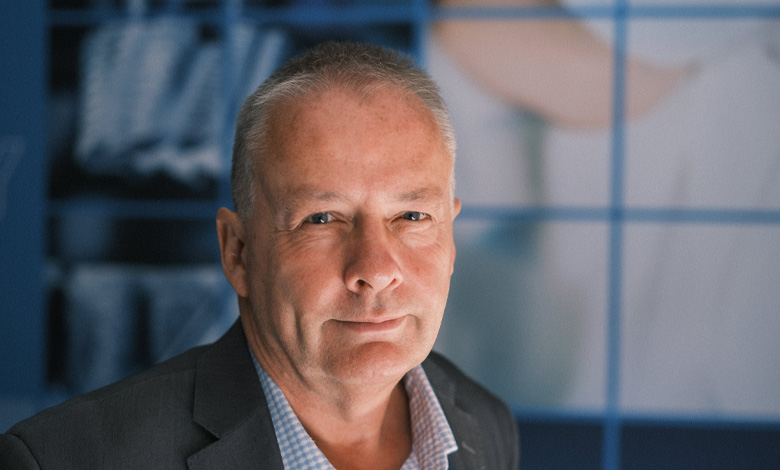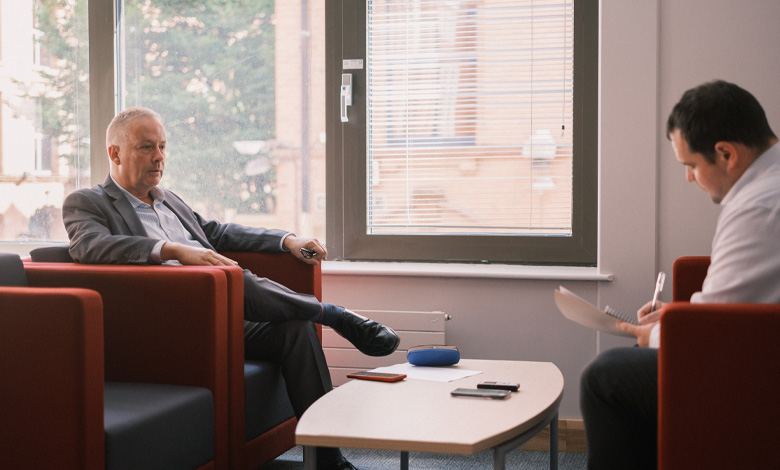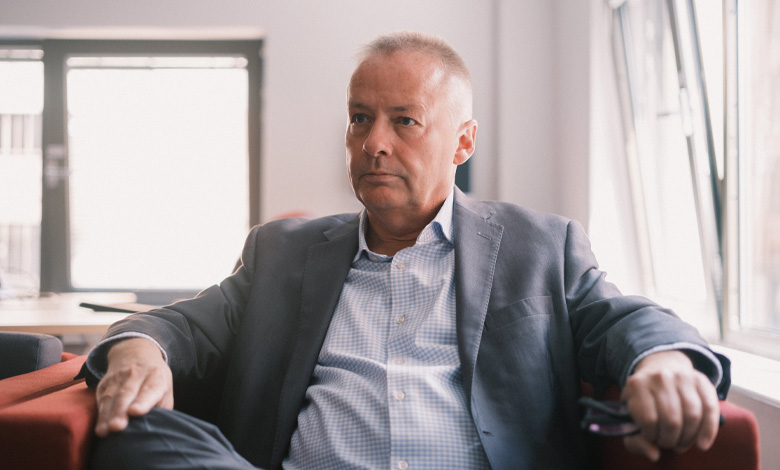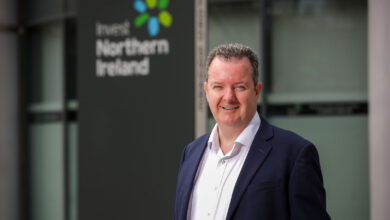Prioritisation in a time of constraint

Department for the Economy (DfE) Permanent Secretary Mike Brennan talks to David Whelan about 10X prioritisation in a challenging budgetary climate.
In July 2023, the Department for the Economy published its 10X Delivery Plan 2023/2024, a first of its kind document, which sets out a core set of objectives that apply across the work of the entire department and its partner organisations.
While the document outlines ambitions for a ‘step-change’ in economic performance, there is also acknowledgement of the very difficult economic and political climate from which economic growth is expected to emerge.
In the absence of an Executive, responsibility for the delivery of the plan rests with the Department’s most senior civil servant, Mike Brennan, whose previous roles within the civil service include Public Spending Director in the Department of Finance and NICS Chief Economist.
That challenges facing Northern Ireland’s economy are not new, but in fact long-standing, dominates the context in which Brennan sets the discussion around future ambitions.
“The last six years have been increasingly challenging from an economic policy perspective,” he says, adding: “Seven years ago civil servants were confronted with the hugely complex and wide-ranging consequences of what Brexit meant and all of the analysis that was needed to accompany it. That was quickly followed by the Covid-19 pandemic and, subsequently, we now have a budget crisis. Overlay these challenges with the fact that we have had periods with and without strategic political direction, and the difficult climate for economic policy is evident.”
Brennan has also had to assume responsibility for the delivery of the Department’s 2023/24 budget allocation, which in essence means administering a wide variety of cuts, without political direction or accountability.
Describing delivery of a budget, which the Department’s calculations indicate represents a real spending power reduction of £130 million or 16 per cent, as “especially difficult”, Brennan acknowledges that the Department and its associated arm’s length bodies will all be impacted.
The Permanent Secretary registers his frustration that widespread cuts do not align with a vision for economic growth. “The only way out of this budget crisis is to have an economy which is growing for the long-term, with stable funding for the public sector. If we want to grow the economy, then we must invest in it.”
Brennan is cognisant of how financial restraints on bodies such as Tourism NI, Invest NI, and NI Screen, which generate multiples of economic added value from their baseline funding, is a limitation on the economic growth potential of the region.
However, the Permanent Secretary believes the 10X “triple bottom line” of innovation, inclusive growth, and sustainability, presents an opportunity for prioritisation of investment in those areas with the potential to facilitate the greatest levels of economic growth.

Asked whether the financial settlement for the year ahead delivered by the Secretary of State is cause for a review of the 10X Economy vision, the Permanent Secretary says: “No, not in the near term because these early years will be about setting the basis for the delivery process. Perversely, there is something positive about the poor budget settlement in that it forces the Department to prioritise the delivery of 10X in our business plan and the business plan of our arm’s length bodies.
“What we are doing currently in the Department is assessing the extent to which each area we allocate budget to will positively impact on the 10X delivery plans. I believe years three and four are where we will need to see massive budgetary upscaling, particularly around the skills agenda.”
Levelling up
In March 2023, Brennan along with his Department of Finance counterpart, Permanent Secretary Neil Gibson, penned a letter to the UK Parliament’s Levelling Up Committee criticising how post-Brexit funds are being allocated in Northern Ireland and describing operation of the regional development plan as “highly sub optimal”.
Asked to elaborate on his concerns, Brennan says: “In the run up to Brexit, there was a promise that EU funding would at the least be replicated. The reality is that this Department has suffered significant financial loss, particularly in relation to European Social Fund (ESF) funding. The ESF funding was relied upon by a wide range of organisations in the voluntary and community sector, which provide crucial interventions, but we have not seen anything from the levelling up agenda that comes anywhere close to replicating that funding.
“I think there is a lack of understanding around the value of these interventions provided. Interventions that, if not provided, have a long-term economic impact and generate significant longer-term costs for the justice, health, or housing systems, for example.”
Direction
Despite obvious challenges, Brennan says that there are positives to build upon. The endorsement of an energy strategy, The Path to Net Zero Energy, by the Executive prior to its collapse and the passing of climate change legislation, with legally binding targets, are both potentially economically transformational, if the right focus is applied.
The Department for the Economy recently published the Energy Action Plan for 2023, building on the overarching Energy Strategy published in late 2021.
“We are implementing the energy strategy as quickly as possible. There has been lots of positive progress, for example recent engagement with the US administration on developing a hydrogen economy and the launch of a recent multimillion pound pilot project, GeoEnergy NI, exploring the potential for geothermal energy in Northern Ireland.
“However, while we are progressing the early framework, progress in these areas is future budget dependent, and we can move at a greater pace if the resources are available.”
As Brennan points out, in the 10X Delivery Plan, Northern Ireland’s economy remains a poor performer on several key measures. “We need a more productive and innovative economy, and this enhanced economic activity must be diffused throughout the region,” he states, calling for “dramatic change” on performance.
In relation to the transformative power of a net zero transition in energy, he says: “My concern is that some people are not able to join up the dots and recognise the value of a coherent energy strategy. Yes, there is great value in reducing costs to consumers and increasing security of supply through the generation of our own indigenous green energy, but there are broader advantages to go beyond this, including the generation of expertise in emerging industrial sectors.
“At the minute, we have a competitive edge in some key areas but if we do not hurry up, we will lose that and allow others to exploit it.”

Skills
Brennan’s assertion that Northern Ireland could be left behind in the competition with other regions is particularly pertinent when it comes to skills, an area which has been identified by the Department as a policy priority.
Skills for a 10X Economy, Northern Ireland’s skills strategy, was published in March 2022 and Brennan explains that future focus must also be on prioritisation of key sectors and on younger people.
“The skills agenda is one that we must walk our way through carefully because, as a department, we have such a wide range of interventions across all levels of educational attainment. In the current budget environment we are having to instil a sense of prioritisation as to where our preferences lie.
“Our headline labour stats show an unemployment rate of 2.5 per cent and a trend of growing employment, but these positive figures are somewhat superficial. We have a large productivity problem, sitting almost 20 percentage points lower than the UK average, which is itself a laggard in comparative international terms. We also have over 200,000 people of working age who classify themselves as economically inactive, so there are fundamental policy problems.
“That is why our sense of prioritisation tends to be at lower-level qualification interventions and, in particular, trying to get young people active in the labour market. Work around apprenticeships, assured skills academies, and the work of further education colleges will really go to the heart of where we want to get to.
“If we look to the future, particularly a net zero economy, there is a raft of skills needed that we simply do not have. However, this is an opportunity to bring those economically inactive people back into the labour market.”
Discussing whether Northern Ireland’s economy is capable of retaining and attracting the levels of talent needed to deliver a net zero economy, Brennan says: “If we get all of the pieces right in the form of an efficient economy, good health and education sectors, and good physical infrastructure, then this region can be an attractive place to live. I would add that we have identified a series of clusters where there are massive opportunities for job creation in high value-added sectors. These jobs are well paying jobs regardless of whether they are in health and life sciences, advanced manufacturing, or screen growth. They are attractive, but we need to invest in skills at the very start.”
“At the minute, we have a competitive edge in some key areas but if we do not hurry up, we will lose that and allow others to exploit it.”
Invest NI
In January 2023, an independent review of Invest NI, Northern Ireland’s economic development agency, commissioned by the previous Minister for the Economy, concluded that the agency needs profound change, which requires “reform and repurposing”.
In addition, the review, focusing on the relationship between Invest NI and the Department, underlined the need for “a stronger relationship built on clear, public, performance targets, stronger joint working, more precise communications, along with tighter post hoc scrutiny”.
Commenting on the recommendations, Brennan says: “The review highlighted a number of dysfunctionalities within Invest NI, and in its relationship with the Department. We are now moving at pace to address those.
“Working with Invest NI, we have established a number of task-and-finish working groups, which the Invest NI board have been proactive in pushing forward. We are also on track to have a series of action plans ready to announce in the autumn.”
Brennan concedes to being “unsurprised” by the review’s findings. Questioning the sustainability of operating over 100 support programmes in the current economic climate, the Permanent Secretary points to an opportunity to apply the 10X prioritisation lens to programme delivery.
“We believe Invest NI is going to be critical to our future economic growth, particularly in relation to actions within the energy strategy and rolling out projects within the City Deals. We as a Department are not skilled up and resourced to do all of that, however, there is a huge wealth of expertise within Invest NI that will be utilised.
“The fact that the Invest NI board is on the same page as the Department in relation to 10X delivery means it is a perfect marriage and perfect timing.”
Concluding, Brennan acknowledges that the Department, as well as beginning a prioritisation process around 10X, also has work to do promoting the concept of the delivery plan to business organisations and social partners.
For the year ahead, Brennan describes the existence of what he terms a “governance gap” around the current powers of Permanent Secretaries, and calls for greater clarity from the Secretary of State around existing powers to improve corporate governance across the public sector.
“In the longer term, we are not far from the autumn, which is when budget considerations would normally begin for 2024/25. Getting clarity as quickly as possible around the level of resources available, and not well into the next financial year, would help with planning for future investment.”





